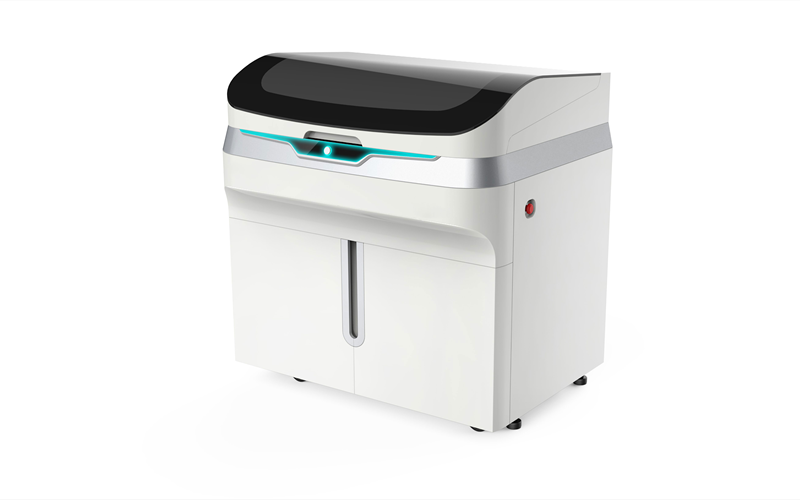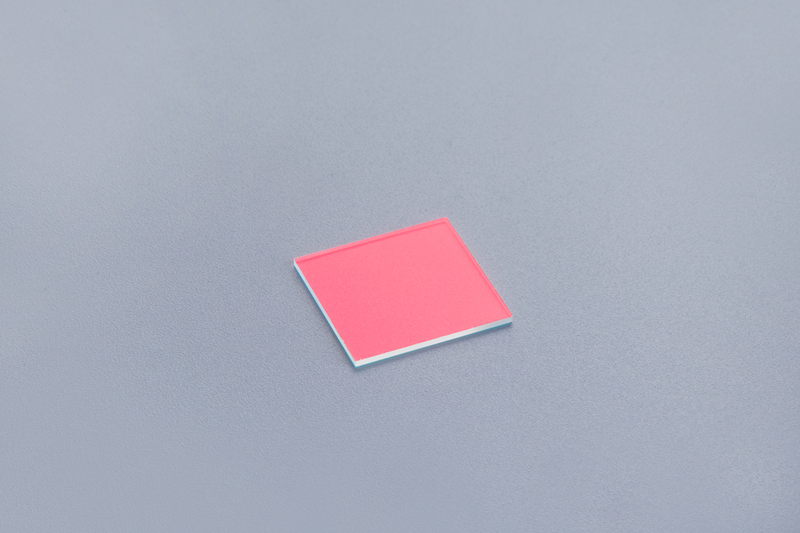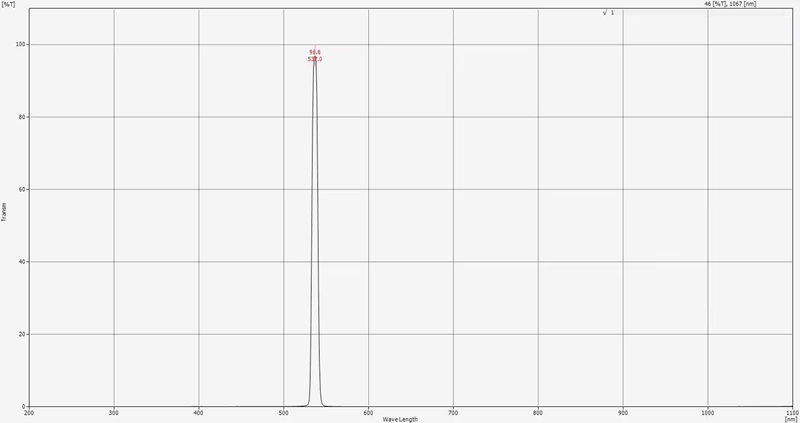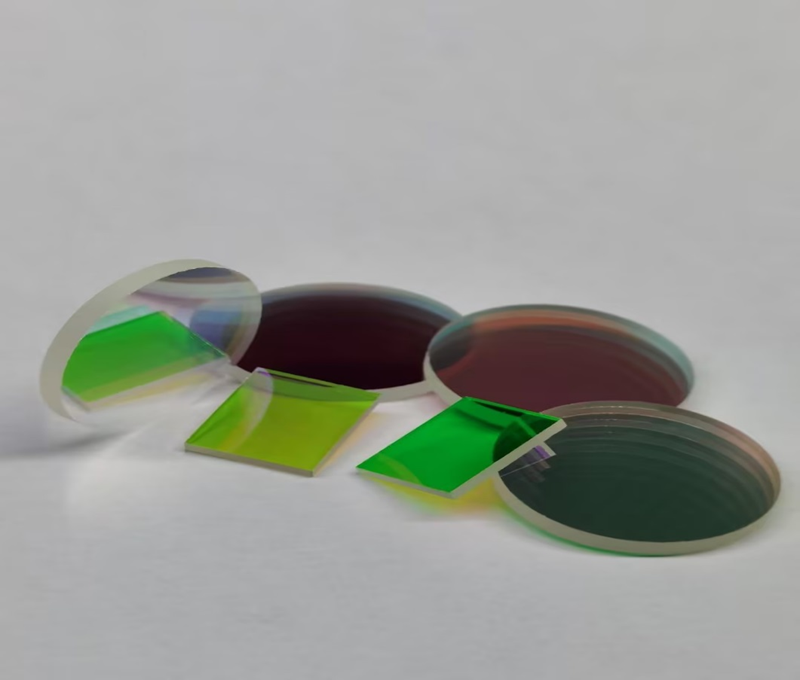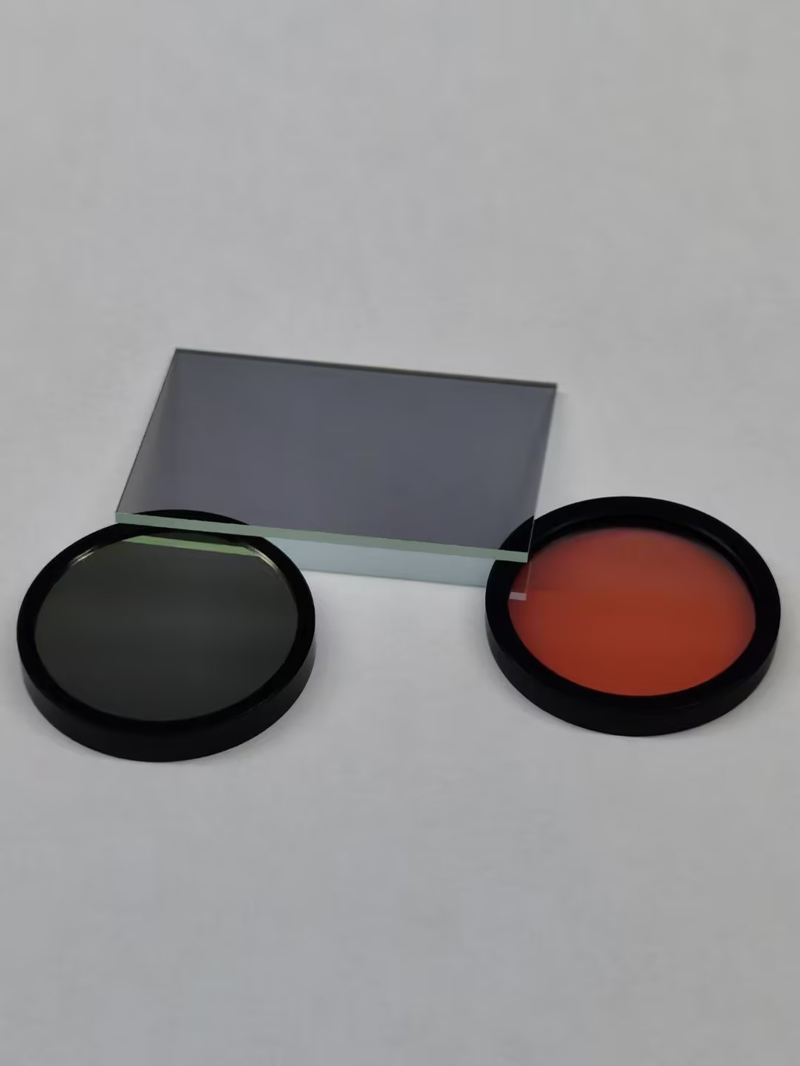Biochemical analyzer, also known as biochemical instrument, is a precision optical device commonly used in biomedicine, clinical diagnosis, food safety, environmental monitoring and other fields. Optical filters play a vital role in these instruments.
The principle of optical filter:
Optical filters work by selectively transmitting or reflecting light according to its wavelength. They process light of specific wavelengths through mechanisms such as absorption, transmission, and reflection. In biochemical analyzers, optical filters can precisely select the desired wavelength of light, thereby enabling accurate capture and analysis of spectral signals.
The role of optical filters in biochemical analyzers:
01 Optical Isolation
Filters can effectively isolate unnecessary spectral components to prevent them from interfering with test results, ensuring that the biochemical analyzer can accurately capture the spectral signals emitted by the target substance, thereby improving detection accuracy.
02 Light compensation
By adjusting the filter, the spectral signal can be compensated so that the signals emitted by different substances reach a relatively consistent level during the detection process, thereby improving the reliability and stability of the measurement.
03 Photoexcitation
During fluorescence detection, the filter can also be used as a filter for the excitation light source to ensure that only light of a specific wavelength can excite the target substance to emit fluorescence, thereby precisely controlling the fluorescence signal and improving detection sensitivity and specificity.
04 Light Display and Sensing
Optical filters can also be used to display and sense fluorescence signals, converting the captured fluorescence signals into visual images or electrical signals for doctors and researchers to analyze and interpret, helping to realize the automation and intelligence of biochemical analyzers.
Common optical filter types used in biochemical analyzers:
Filters are mainly used in the spectral device of biochemical analyzers to measure the absorbance or fluorescence intensity of the sample by selecting light of a specific wavelength, thereby determining the concentration of chemical components in the sample. Common types include:
01 Narrowband filter
Narrowband filters of specific wavelengths, such as 340nm, 405nm, 450nm, 510nm, 546nm, 578nm, 630nm, 670nm and 700nm, have a half-bandwidth of 10nm and have extremely high spectral selectivity and transmittance. These filters can accurately select light of specific wavelengths and are suitable for special equipment such as microplate readers.
02 Standard Biochemical Filter
This type of filter is suitable for the optical system of general biochemical analyzers and has the characteristics of stable spectral performance and long service life.
03 Energy Matching Biochemical Filter
These filters can be customized according to the energy matching requirements of the biochemical analyzer optical system to ensure accurate transmission and processing of spectral signals.
04 Multi-channel spectral biochemical filter
Designed for applications requiring simultaneous analysis of multiple wavelengths, these filters enable efficient and comprehensive spectral analysis in biochemical testing.
Development trends
With the continuous advancement of medical technology, biochemical analyzers have higher and higher requirements for optical filters. In the future, the application of optical filters in biochemical analyzers will show the following trends:
01 High Precision
The spectral selectivity and transmittance of optical filters will be further improved to meet the needs of high-precision detection in biochemical analyzers.
02 Versatility
Optical filters will integrate more functions, such as optical isolation, light compensation, optical excitation, optical display and sensing, to realize the automation and intelligence of biochemical analyzers.
03 Long service life
The service life of optical filters will be further extended to reduce replacement frequency and maintenance costs.
04 Customization
Optical filters will be customized according to the specific needs of biochemical analyzers to meet the requirements of different users.
In summary, optical filters play a vital role in biochemical analyzers. Their high precision, multi-function, long life and customization will promote the continuous development of biochemical analyzer technology.
For more insights and expert advice, visit our website at https://www.jiujonoptics.com/ to learn more about our products and solutions.
Post time: Dec-20-2024

